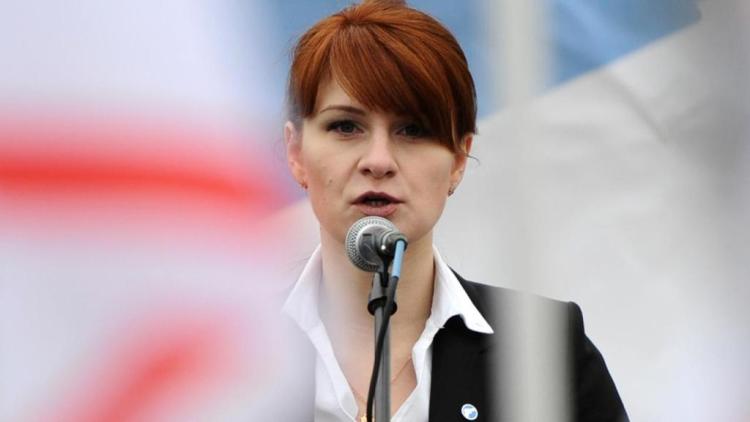Russian accused of operating as secret agent, studied US groups' cyberdefenses
Butina participated in the project under the tutelage of a respected professor who advised the State Department on cybersecurity matters.

- Country:
- United States
A year before federal prosecutors accused Maria Butina of operating as a secret agent for the Russian government, she was a graduate student at American University working on a sensitive project involving cybersecurity.
Butina's college assignment called for her to gather information on the cyberdefenses of U.S. nonprofit organizations that champion media freedom and human rights, The Associated Press has learned. It was information that could help the groups plug important vulnerabilities, but also would be of interest to the Russian government.
In fact, the Russians previously had in their sights at least two of the groups that she and other students interact with.
Butina participated in the project under the tutelage of a respected professor who advised the State Department on cybersecurity matters.
It was carried out for the nonprofit group Internews, which works extensively with the U.S. government to bolster the free flow of information in dangerous parts of the world and has drawn Russian ire with some of its programs in Russia and neighbouring countries. The group also advises other nonprofits on cybersecurity.
Internews confirmed Butina's involvement and a broad description of what the project involved. A lawyer for Butina did not respond to a request for comment.
Butina's project raised few eyebrows before her July arrest, despite the fact that news reports already had posed questions about her rapid rise from selling furniture in Siberia and her ties with Kremlin officials.
As part of the project, a small group of students led by Butina was given a list of Internews partners working on human rights and press freedom issues for research purposes only, with the understanding that they not be contacted without consultation.
But the students contacted some of the groups anyway, according to people involved in the project who spoke on condition of anonymity because they were not authorized to describe the work.
An individual who has worked on U.S. programs in Ukraine told the AP that after Butina's arrest he was briefed by U.S. officials who expressed concern that two Internews programs in Ukraine — dealing with media freedom and cybersecurity, and funded by the State Department — may have been exposed to Russian intelligence and may be at risk due to Butina's student work.
State Department spokesman Robert Palladino said the department was not involved with the Internews project Butina worked on.
"We have verified that all documents Internews provided to its students were publicly available, and we remain confident in the integrity of the State Department's programs with Internews," he said.
Kostiantyn Kvurt, who heads a local nonprofit that Internews helped establish, Internews Ukraine, said he was unaware of Butina's project before being informed of it by the AP, but already was wary of potential Russian intelligence interference.
"If they understand how to break our firewalls, they could find our partners," Kvurt said. "People could get detained, tortured, killed," Internews said the students were never given access to the group's work or systems.
"The selection of the students and their roles and activities in the research was solely determined by AU faculty," spokeswoman Laura Stein Lindamood said. "Internews is currently reviewing our relationship with university-led student projects."
The access that Butina won through her coursework illustrates how academia and the extensive network of entities that often carry out sensitive, but not classified, work for the U.S. government remain national security vulnerabilities.
In this case, all the institutions expected someone else to vet Butina. Internews thought American University stood behind her; the university said it doesn't do background checks and expects the State Department to vet foreign applicants fully before issuing visas.
Prosecutors allege in court documents that attending the university was Butina's "cover" as she cultivated political contacts and ties with the National Rifle Association.
They contend she was part of a clandestine political influence campaign directed by a former Russian lawmaker who has been sanctioned by the U.S. Treasury Department for his alleged ties to Russian President Vladimir Putin.
(With inputs from agencies.)
- READ MORE ON:
- Associated Press
- United States Department of Defense
- United States Department of State
- Department of Finance
- Sonsonate Department
- United States of America
- U.S. state
- Food & Supplies Department RO-Manikantla-1
- National university
- National park
- National Taiwan University
- National Taiwan Normal University
- National Taiwan University of Science and Technology
- Abel Tasman National Park
- United Nations
- Spokesperson for the United States Department of State
- National Rifle Association
- United States Department of the Treasury
- Foreign Intelligence Service (Russia)










